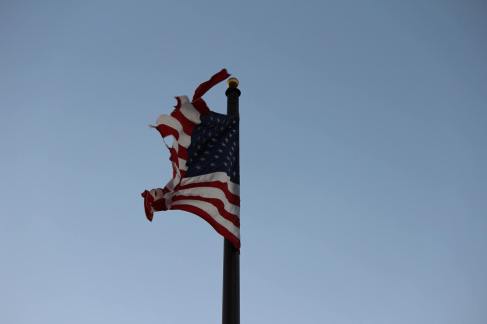I did not have the easiest childhood. My sister’s was even less easy. The reason? Our mother suffered from mental illness, specifically, severe clinical depression. Our mother was always yelling and hitting. As a result, everyone else was always yelling. Our house was always LOUD. My mother played favorites and I was hers. My father realized this and compensated by going out of his way to be there for my sister.
At least that’s how I remember it. My father remembers it differently.
When I was ten years old, my mother had a breakdown. In a fit of unexplained anger, she grabbed a large kitchen knife and went after my father. My sister and I huddled together in a corner, scared out of our minds. The police were called (I don’t think 911 existed yet) and my mother was institutionalized for several months, receiving electric shock therapy.
At least that’s how I remember it. My father remembers it differently.
After Mom came home, she continued to see a psychiatrist for a number of years. We even had a year or more of family therapy. Her depression improved, but I still don’t believe she was ever totally cured of it. In our high school years, my mother, knowingly or not, often pitted me and my sister against each other. We didn’t realize what was happening until many years later. But it affected our relationship with each other well into adulthood. And she was critical of everyone – what we wore, our hair styles, how we parented our own children, you name it. Her grandchildren didn’t escape her criticism either. As a result, it pains me greatly to say that my children did not really care to have a significant relationship with her.
Don’t get me wrong – I loved my mother deeply and once I was old enough to understand her mental illness, was able to find compassion. I worked hard at our relationship. Sometimes I was more successful than others. I rarely got to see the woman she became once my parents retired and moved to Florida – she rediscovered her Judaism, taking classes and eventually studying to become an adult Bat Mitzvah, volunteering at the synagogue, being such a good friend to women in her congregation.
My mom died in February, 2012. I wrote a eulogy on the plane to Florida. Thankfully, my father asked me to read it to him. It was not easy for him to hear. Because as you may have guessed, he remembers things very differently than I do.
“Do you really feel that way? Was it really that bad?” Not angry, but clearly pained.
“Why didn’t you do something?” “I didn’t know.”
“She pitted Ellen and me against each other.” “I didn’t realize it.”
“She went after you with a butcher knife.” “She wouldn’t have hurt me.”
“I WAS TEN YEARS OLD – I DIDN’T KNOW THAT!” “I’m sorry, I didn’t realize.”
In that moment I knew that I hadn’t written the eulogy I wanted to give; I had written the eulogy I needed my father to hear. I didn’t realize at the time, but I needed to forgive my father for not protecting my childhood innocence all those years ago. And in that moment, I found forgiveness.
And wrote the eulogy I wanted everyone else to hear.
In January, 2013, I flew back to Florida for Mom’s unveiling. It was very private – my father and me, a few lifelong friends and the rabbi. We shared a few memories, read a few poems, sang Eil Malei Rachamim and said the Mourner’s Kaddish. It was exactly what Dad and I needed it to be.
And then we spent the next few days talking. For hours. And hours. And more hours.
My father shared with me all of his memories of my mother. I wished he had shared them with me years earlier. I wished I had been able to see Mom through his eyes. Would it have made a difference? I don’t know, but I’d like to think it would have.
My childhood was not easy. My mother suffered from mental illness and so we all suffered. I remember the bad times, which in my formative years, heavily outweighed the good. My father, on the other hand, remembers only the good times. He remembers my mother as a college student, as a pregnant wife who couldn’t wait to become a mom, as the beautiful woman who took his breath away. He remembers picnics and trips to the beach, happy vacations and wonderful dinner parties. He remembers my mother’s enchanting smile and the gleam in her eyes.
Yes, I wish I had been able to see my mother through my father’s eyes. I would have found forgiveness years ago, along with understanding and compassion.
I’m grateful now for those many, many hours Dad and I spent talking last January, because we reached the point of remembering some things the same way. It wasn’t all bad and it wasn’t all good. I wish I had the gift of remembering only the good, and I hope Mom found it in her heart to forgive me for remembering mostly the bad.
The Jewish month of Elul leading up to the High Holy Days provides an opportunity for spiritual preparation. It is a time for cheshbon ha-nefesh – looking inward and reflecting on the past year. The daily sounding of the shofar calls us to examine our words and our actions, and the words of Selichot (prayers of forgiveness) inspire us to seek forgiveness and to forgive others. We look ahead to the new year when we can begin anew, striving to be the best version of ourselves. Each day, I plan to blog on a thought related to this period preparation for the Days of Awe, along with many others in the Jewish blogosphere. For further inspiration, search #blogElul on Twitter or Facebook.
I invite you to add your own thoughts on the daily topic. Feel free to add your comments below or write your own blog, following the daily topics indicated or any others that call out to you.







